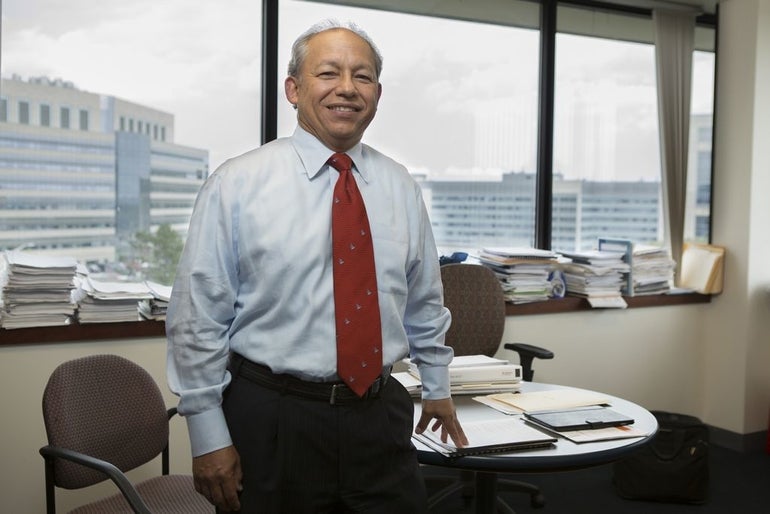Nonprofit healthcare organizations in Massachusetts avoid millions in taxation each year in exchange for serving the public interest, but that doesn’t mean they don’t know how to make money.
Providers with charitable missions, frequently among the largest companies in a given region, are often buoyed by for-profit subsidiaries, which may soon be under closer scrutiny.
This month, the Massachusetts Division of Insurance announced a new preferred provider organization plan created under a for-profit subsidiary of Delta Dental of Massachusetts was approved for business, a good thing for small businesses looking to offer affordable dental insurance for their employees, according to Delta, the state’s largest dental insurer.
But a group of opposing dentists have asked Attorney General Maura Healey to review the plan, complaining, among other things, the insurer is moving the assets of the nonprofit charitable parent into a for-profit company not beholden to the same mission of serving the public interest.
The dentists claim using for-profit subsidiaries creates a complicated corporate structure, making it more difficult for the Attorney General’s Office to review its dealings, as required by state law. Delta Dental spokeswoman Kristin LaRoche shot down the claim the corporate structure makes the company less transparent, saying it’s actually a strength, giving the company the financial wherewithal to provide dental benefits while supporting initiatives to improve oral health. Healey’s office is reviewing the new for-profit spinoff, in terms of how it impacts the operations of the nonprofit parent organization, Healey spokeswoman Emily Snyder said last week.
Disturbing or complicated
James Donnelly, an attorney in the Worcester office of Mirick O’Connell who is representing dentists opposing Delta Dental’s new plans, said Healey is likely carefully reviewing the matter, as a review and its outcome could set a precedent for healthcare companies creating spinoffs.
“They see this as an important issue that they have to deal with very carefully, and it’s complicated,” Donnelly said.
Donnelly’s experience as a litigator representing healthcare clients informs his balanced view of the use of for-profit subsidies. In the case of Delta Dental, Donnelly said the nature of the spinoff creates concern because assets from the nonprofit are being transferred to a for-profit subsidiary. But in other cases, creating for-profit spinoffs is savvy, as profits can be redirected to support a parent organization’s charitable mission.
“Some situations can be disturbing; others are just examples of how things get complicated as they get bigger,” Donnelly said.
A $12M spinoff
Most nonprofit Massachusetts health insurance plans, including Worcester-based Fallon Health, have for-profit subsidiaries, as does the region’s largest employer, nonprofit UMass Memorial Health Care in Worceser.
UMass Memorial has been aggressively pursuing affiliation deals under its for-profit, UMass Memorial Health Ventures Inc. Last year, the spinoff generated about $12 million, which was used to reinforce operations of the system at large, said Sergio Melgar, chief financial officer of UMass Memorial Health Care.
Melgar said by owning for-profit subsidiaries, UMass Memorial can be more nimble, extending its reach beyond Massachusetts. UMass Memorial has other separate for-profit ventures, but most will probably end up under the Ventures umbrella in the future, Melgar said.
Under the Ventures company, UMass Memorial has affiliated with national firm ATI Physical Therapy, and Quincy-based CareWell Urgent Care.
“Healthcare is really getting connected to other locations, throughout the country,” Melgar said. “It’s a way to stay competitive and to stay relevant in the market.”
The assets and income generated by for-profit subsidiaries are audited and reported to federal and state regulators, and Melgar said all activities are transparent.
Yet, critics remain.
Cayman Islands dealings
One of the most vocal opponents of UMass Memorial’s for-profit activities is the Massachusetts Nurses Association. The union representing the nurses employed at UMass Memorial hospitals, the MNA has been critical of a captive insurance company UMass Memorial formed in the Cayman Islands for the purpose of self insuring the organization for disability, workers compensation and malpractice claims.
Self insurance is attractive for large organizations able to absorb the risk of insuring its employees without an outside insurance company. Melgar said UMass Memorial will use the profits of the company to keep insurance costs level, or even reduce them in a good year.
The insurance company is audited by PricewaterhouseCoopers and managed by Bank of New York Mellon, according to Melgar, and he said the company is careful to demonstrate claims paid out match closely budgeted claims.
But the MNA has speculated the system and others in Massachusetts may use a portion of profits from offshore holdings to increase executive compensation.
Melgar denied this claim and said healthcare organizations frequently choose to form insurance companies for the same purpose in the Cayman Islands because, in addition to tax benefits, local regulations are ideal for creating such entities. In Massachusetts, there’s no legal structure for doing so, Melgar said.
Transparency bill fate uncertain
David Schildmeier, spokesman for the MNA, said it’s difficult to reconcile the fact that UMass Memorial has tens of millions in an offshore insurance company and has a healthy profit while the organization has moved to reduce services in recent years, saying it’s losing money. He specifically pointed to the recent decision to close several beds in an inpatient psychiatric unit at UMass Memorial Medical Center’s University Campus in Worcester.
Schildmeier noted federal and state filings may include information about offshore and other for-profit holdings, but those are difficult for the average person to decipher.
“The industry is very powerful, getting them to be transparent is difficult,” Schildmeier said.
The MNA is supporting a bill called the Hospital Profit Transparency and Fairness Act, which would require greater transparency of hospitals’ financial holdings and seeks to limit exorbitant CEO compensation, according MNA.
The bill before the Massachusetts legislature went to a hearing in June. Schildmeier said it will be an uphill battle to get the bill approved, given the strength of the hospital lobby.
This story was modified from its original version to reflect that UMass Memorial’s Cayman Islands insurance company is audited by PricewaterhouseCoopers.

